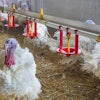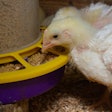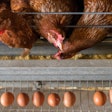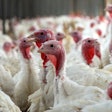Whole genome sequencing is one of the latest advancements when it comes to tools being used to identify and address food safety threats. The North American Meat Institute (NAMI) and the U.S. Poultry & Egg Association (USPOULTRY) are co-sponsoring a free session on the technology, how it is used and how it might affect your business at the 2017 IPPE.
This program will be held from 8 a.m. to 10 a.m. on Feb. 2. Presenters will be Dr. John Besser, deputy chief, enteric diseases for the Center for Disease Control and Prevention; Dr. Matthew Wise, outbreak response team lead for the Center for Disease Control and Prevention, and Haley Oliver, associate professor of food science from Purdue University.
Specific topics covered include: Understanding Whole Genome Sequencing; Whole Genome Sequencing as an Advance for Public Health Surveillance; Whole Genome Sequencing Use in Outbreak Investigations and Industry Implications for Whole Genome Sequencing.
IPPE, the world's largest annual poultry, feed and meat industry trade show, will be held Jan. 31-Feb. 2.
For more information about the “Whole Genome Sequencing – Food Safety Implications” program, click here. For more information about IPPE, go to www.ippexpo.org.














